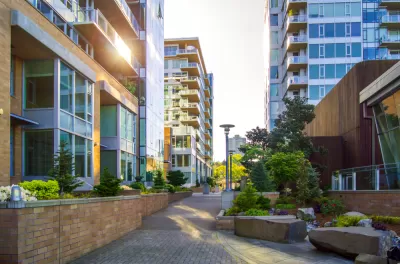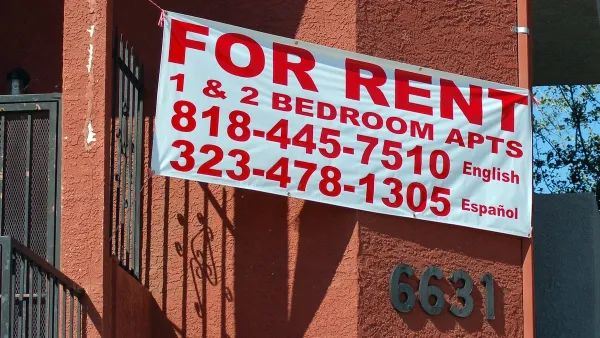The Biden administration plans to expand the federal housing voucher program, which currently provides rental assistance to 2.3 million U.S. households.

Results from a Department of Housing and Urban Development (HUD) study that began in 2008 show that "[p]riority access to a long-term housing subsidy led to by far the best outcomes for reducing family homelessness 3 years after random assignment," reports Jared Brey in NextCity. "It’s one of numerous studies that show the housing choice voucher program is an important lifeline for thousands of low-income families who might otherwise be unable to find an apartment. Despite that, the federal government currently only funds enough vouchers for about a quarter of families that qualify for the benefit. In many cities, the waiting list for a voucher is years long — or closed entirely."
The Biden administration is seeking to expand the federal housing voucher program by adding $5.4 billion to its budget "and creating vouchers for an additional 200,000 families, beyond the 2.3 million existing voucher holders." Housing advocates praise the move, citing "significant evidence" that the program works more effectively than other interventions.
The proposal still "falls short of Biden’s campaign promise calling for the voucher program to be funded so that every qualifying family can receive one," and voucher recipients face their own set of challenges. Some landlords discriminate against voucher holders, limiting their options and reducing their mobility and access to jobs and amenities. But advocates see the proposal as a hopeful sign for making rental assistance a much more substantial part of federal housing policy, while HUD Secretary Marcia Fudge said that the request "turns the page on years of inadequate and harmful spending requests" that crippled the department's ability to meet the country's housing needs. Douglas Rice, a senior fellow on the housing policy team at the Center on Budget and Policy Priorities, agrees. "I think it’s an important signal of what their priorities are going to be in terms of low-income housing policy."
FULL STORY: How Expanding Vouchers Could Improve Housing Stability

Planetizen Federal Action Tracker
A weekly monitor of how Trump’s orders and actions are impacting planners and planning in America.

Restaurant Patios Were a Pandemic Win — Why Were They so Hard to Keep?
Social distancing requirements and changes in travel patterns prompted cities to pilot new uses for street and sidewalk space. Then it got complicated.

Map: Where Senate Republicans Want to Sell Your Public Lands
For public land advocates, the Senate Republicans’ proposal to sell millions of acres of public land in the West is “the biggest fight of their careers.”

Maui's Vacation Rental Debate Turns Ugly
Verbal attacks, misinformation campaigns and fistfights plague a high-stakes debate to convert thousands of vacation rentals into long-term housing.

San Francisco Suspends Traffic Calming Amidst Record Deaths
Citing “a challenging fiscal landscape,” the city will cease the program on the heels of 42 traffic deaths, including 24 pedestrians.

California Homeless Arrests, Citations Spike After Ruling
An investigation reveals that anti-homeless actions increased up to 500% after Grants Pass v. Johnson — even in cities claiming no policy change.
Urban Design for Planners 1: Software Tools
This six-course series explores essential urban design concepts using open source software and equips planners with the tools they need to participate fully in the urban design process.
Planning for Universal Design
Learn the tools for implementing Universal Design in planning regulations.
Heyer Gruel & Associates PA
JM Goldson LLC
Custer County Colorado
City of Camden Redevelopment Agency
City of Astoria
Transportation Research & Education Center (TREC) at Portland State University
Camden Redevelopment Agency
City of Claremont
Municipality of Princeton (NJ)





























